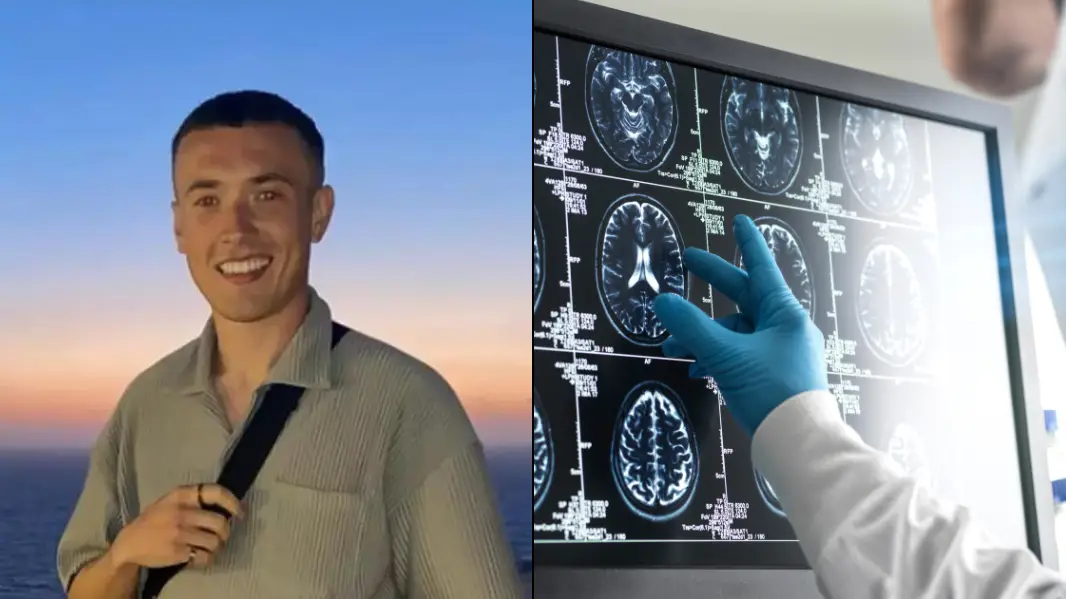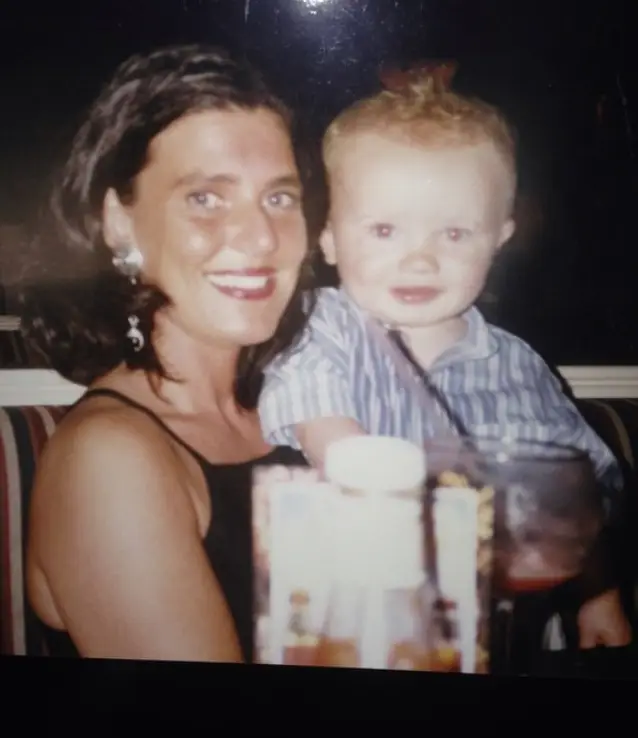
There are a number of important symptoms to watch out for when it comes to the development of young-onset dementia.
The condition has been brought into the spotlight following a brave ITV interview with marathon runner Jordan Adams.
Jordan, 28, from Redditch, saw his late mum Geraldine diagnosed with frontotemporal dementia (FTD) when he was just 15 years old.
Advert
It's a rare form of early-onset dementia, giving those diagnosed an average seven to 13 years to live from the moment of symptoms begin to develop.
Jordan told Good Morning Britain viewers that he inherited a rare genetic fault from his mum that now means he will develop dementia in his 40s.
With this in mind, we thought it would be useful to put together a list of symptoms and warning signs to look out for when it comes to early-onset dementia and the kind of dementia will Jordan develop, frontotemporal dementia, as both have slightly different things to look for.
What is frontotemporal dementia?
Broadly speaking, when a person develops dementia before the age of 65, this is known as ‘young-onset dementia’. More than 70,800 people in the UK are living with young-onset dementia.
Jordon is at risk of developing frontotemporal dementia, which is an uncommon type of early-onset dementia that causes problems with behaviour changes and language.
Dementia itself is the name for problems with mental abilities caused by gradual changes and damage in the brain.
Frontotemporal dementia affects the front and sides of the brain (the frontal and temporal lobes). Dementia mostly affects people over 65, but frontotemporal dementia tends to start at a younger age.
Most cases are diagnosed in people aged 45 to 65, although it can also affect younger or older people.

Like other types of dementia, frontotemporal dementia tends to develop slowly and get gradually worse over several years.
Dementia is caused by underlying diseases that affect how our brain cells work.
The causes of young onset dementia can vary significantly, with Alzheimer’s disease the most common.
What are the symptoms of frontotemporal dementia?
According to the NHS, frontotemporal dementia can cause personality and behaviour changes.
This ranges from acting inappropriately or impulsively and appearing selfish or unsympathetic to neglecting personal hygiene, overeating, or loss of motivation.
There are also issues with language problems. Those who are speaking slowly, struggling to make the right sounds when saying a word, getting words in the wrong order, or using words incorrectly, could be showing signs of FTD.
Mental abilities may also be impacted, with people getting distracted easily, struggling with planning and organisation.
Memory problems will also appear. These only tend to occur later on, unlike more common forms of dementia, such as Alzheimer's disease.

What are the symptoms of early-onset dementia?
When it comes to early-onset dementia in general, one of the clearest symptoms is memory problems that interfere with everyday life.
This may include forgetting a work meeting or recent events that would normally be remembered, or repeating questions.
People can begin to have issues with recognising objects and judging speed or distance.
When visual problems are a leading symptom, the cause may be posterior cortical atrophy which is a rare, visual variant of Alzheimer's disease.
Changes in personality and behaviour are common. These may be subtle at first.
People may become low in mood, irritable, lose their confidence or show less interest in activities they used to enjoy. People may become confused in unfamiliar situations and lose a sense of place and time.
Other symptoms include difficulty finding the right words and communicating. This is called aphasia.
Daily tasks like paying bills, cooking and driving can become impacted.
What causes early-onset dementia?
According to Alzheimer's Research UK, 'the cause of young onset Alzheimer’s disease is a combination of our lifestyle, genetic and environmental factors'.
More research is taking place why some are impacted and others aren't.
The research charity adds: "Most cases of Alzheimer’s are not directly inherited. However, cases below the age of 65 are slightly more likely to be inherited compared to late onset Alzheimer’s."
Directly inherited Alzheimer’s is where a parent with the disease passes a gene on to their children, who also then develop the disease.
Around 11 percent of cases of young onset Alzheimer’s may be directly inherited.
This is sometimes referred to as familial Alzheimer’s.

Three genes - APP, PSEN 1 and PSEN 2 - have been found to play a role in the development of familial Alzheimer’s. Mistakes in these genes (called mutations) can cause the build-up of a toxic protein called amyloid in the brain, which is a key feature of the disease.
How do I get checked for early-onset dementia and frontotemporal dementia?
Go to your doctor with your concerns.
Alzheimer's Research UK says: "Diagnosing dementia early is important. You will be able to get the right help, treatments and support and plan for the future.
"You may also be able to take part in research studies. You should speak to your doctor about your concerns as soon as possible."
If you're struggling to get a diagnosis, you can also contact Dementia UK’s Admiral Nurses.
They are dementia specialist nurses on 0800 888 6678 or [email protected].
If you have questions about young onset dementia, symptoms, diagnosis, treatment, or about taking part in research you can contact the Dementia Research Infoline on 0300 111 5111 or [email protected].
Topics: ITV, Good Morning Britain, Health, UK News, World News